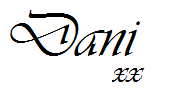Moving Forward
Right, I'm over it! I'm over the hump and have got a new focus, at last! I've been feeling completely burnt out for the previous few weeks and have totally lacked direction. However, I've got past that and I know where I'm going again.
Image Source: paulraspa.com
New Inquiry Focus
After carefully considering the ethics of my proposed inquiry I have decided to alter the parameters slightly. Rather than using interviews with audience members, post show, I will conduct interviews with the creators of theatre itself, gaining their opinions and thoughts on the trend of New Theatre.
I looked back at my early blogs from Module Two, specifically this one and this one and realised that earlier on in my thinking, I wasn't focusing so much on the audience element of new theatre. That train of thought was sparked by a conversation within my SIG and this blog
I revisited my mind-map from the start of the module and have decided to formulate a series of questions for practitioners based on my original points raised from this image.
What Do I Want To Find Out?
I still want to find out why New Theatre continues to be popular, despite times of economic recession and uncertain finances, both personally and in the industry. Why take a risk on something without knowing how audiences will respond?
* Pushing Boundaries
Are theatres more likely to put on new works as they see it as 'pushing' forwards into the future, rather than relying on tried and tested productions. What are the risks involved in this?
* Challenging Expectation
Maybe theatres believe that audiences don't actually know that they want to see something until they're presented with it? Which new productions have been particularly successful and why do practitioners believe this is? (e.g. King Charles III, The Nether, etc)
* Audience Attention Spans
Audiences in a contemporary society have more demands on their time than ever before, and studies in psychology show that children in particular have less focus and less long-term attention spans than previous generations. Maybe new theatre provides a new stimulus to audiences in that they don't know what to expect and can't predict the outcome of the story?
* Thematic Influences
Again, in a world of connectivity we are exposed to more input that ever before. New plays often deal with difficult or challenging subjects that may be thought of as taboo, but are audiences more open to seeing these stories on stage because we are becoming used to seeing horrific news stories on a daily basis?
What is the popularity of new theatre doing for the wider industry? Is it making it more diverse or more difficult? Short runs of new works are increasingly the norm in both the fringe theatres and the West End - are any of them likely to become 'classics' if they deal with very contemporary issues? Is this a problem; that plays may have a very short life span in the theatre and in society? What does this say about the industry itself, are we looking for the 'next big thing' or that we need constant change and stimulus?
Is it the job of theatre to challenge audiences, hold a mirror to society, or to incite change?
These are the foundations on which I will build a series of questions to ask in interviews with theatre practitioners involved in new theatre.
Image Source: dinaters.info
Ethics
I intend to film interviews and will re-draft my consent form to cover this as I may use the recorded interviews in my final presentations and will need to gain permissions from those involved. If permission is given for an interview but not for its further use, I will use the video to transcribe the conversations then delete the hard copy film.
Further Considerations
I am still interested in the effects of theatre on audiences and may still look into this from a different perspective:
The online tool 'SurveyMonkey' allows users to create and distribute questionnaires. I will consider this further but one idea I have had involves creating a small questionnaire, sharing (and asking others in my professional network) on social media, asking for participation from people who have seen a 'new production' in the last week or so. In this way participation will be anonymous and there is no obligation to take part.
By changing the main focus of the inquiry, this element of the research will become less important but will still be interesting to look at and add into the process.
Any thoughts? Ideas? Suggestions? I may have to change the working title so any recommendations for this?






Comments
Post a Comment